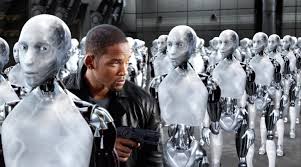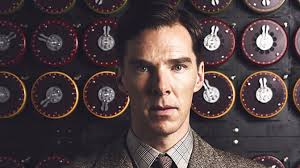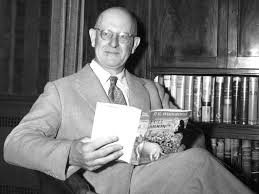How to be a human
What can the ‘most human human’ teach us about writing and reading?
On Monday’s PM programme*, the writer Brian Christian (disconcertingly hailed as ‘the most human human’ for reasons that will shortly become clear) talked about how he’d acted as a ‘human confederate’ in 2009’s Turing Test. In this annual event, a panel of scientists makes small talk by text message with a number of computers and people, and tries to distinguish one from the other. The test is so-called because Alan Turing believed that when it was impossible to distinguish between the two, computers could be described as ‘thinking.’
Christian set out to not only out-human the computers, but also out-human the other humans, and he succeeded. What, he was asked, had been his strategy? The trick, he said, lay in building a sense of a single, unified individual. Computer chatbots draw their data from fragments of multiple conversations; we humans have the advantage of a single consciousness.
With computers: ‘It’s not so much that you’re not talking to a person, but that you’re not talking to a person.’
What Christian is nailing here is voice, a concept familiar to students of creative writing. When you’re studying it, voice can feel like a slippery customer. But when you’re reading, it can be the thing that won’t let you go, even if the plot is shaky, even if the premise isn’t fashionably high-concept, even if the character you’re hearing is annoying, or ridiculous, or just plain wicked.
As actual (real, unwritten) humans, our voice is the sum total of everything we’ve been and done. It carries the traces of where we’ve lived, who we’ve loved, our knowledge and skills and education, our disappointments and triumphs. As writers, we try to imagine someone into being so complete and present that, for us, there’s just a cigarette paper between them and a human human. We try to pass our own Turing Test.
When I taught English in schools, students would often challenge my insistence that they pay attention to the details of language. They’d argue that, after all, the writer herself over a 90,000-word novel couldn’t possibly care about each of those words; she just wouldn’t have time. I can now tell those students that a good writer really does work at that level of detail, that an author who knows her protagonist inside out will, after a while, know – as if by instinct – whether that character sits on a sofa, or a settee, or a couch, or a chaise longue. (And, by the by, I can also tell them that the process of writing a novel is far longer than any of us could possibly have imagined; easily long enough to pore over every single one of the bastard words).
For a masterclass in voice, try these beauties:
Jane Harris, The Observations: I could as well have chosen Harris’s Gillespie and I, since she’s a genius at voice. But I’ve picked her debut, in which the unforgettable Bessy, sometime gentleman’s companion, hastily reconstructs herself as a lady’s maid in the first chapter and pulls us along for the ride that follows: “Hells teeth, how can I explain the wretched despair I felt, except to say that my heart was banjaxed … Dear God, it was a gobaloon!”
PG Wodehouse, The Code of the Woosters: But who am I kidding? You know I just picked this one randomly, right? Any of the Wooster / Jeeves books** would do, so gobsmackingly brilliant is Wodehouse. You know he’s one of the great master-stylists of the English language; you’ve read them already. Here’s Roderick Spode: “Big chap with a small moustache and the sort of eye that can open an oyster at 60 paces.” You’re welcome.
William Boyd, Any Human Heart: Almost everyone who’s read this experiences a sort of crumpling in the mouth area when you mention the novel. It’s a funny, compassionate, heartbreaking chronicle of a human life, notable less for stylistic pyrotechnics (though there are some), than for the patient way in which the reader walks in step with Logan Mountstuart through the course of his life. Uncompromisingly intimate.
*Link here. You’ll find the interview at 46.35
** Yes, the other books are great too, but I wanted to look specifically at first-person writing here.


